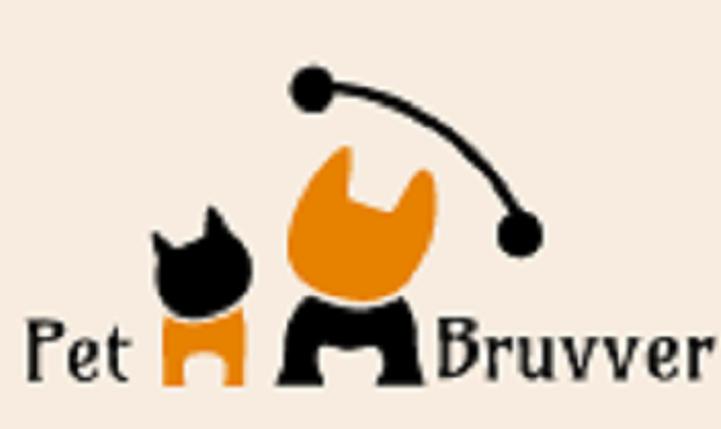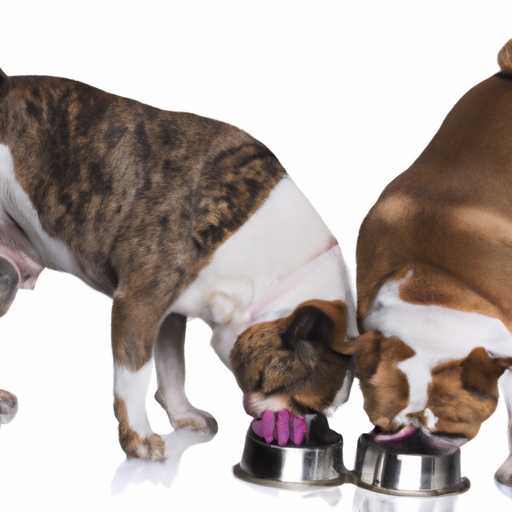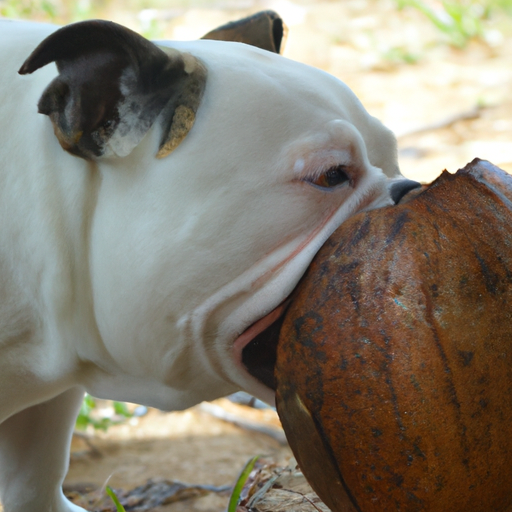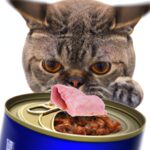Looking for the perfect food to keep your Bulldogs happy and healthy? Look no further than cat food! That’s right, cat food is packed with all the nutrients Bulldogs need to thrive. Plus, it’s a lot cheaper than dog food. So why not give your Bulldogs the best of both worlds with cat food?
What is the best cat food for Bulldogs?
As a dog owner, you want what’s best for your pet. When it comes to food, you may be concerned about what is the best cat food for Bulldogs.
There are a few things to keep in mind when choosing food for your Bulldog. Bulldogs are a breed that is prone to weight gain, so you will want to find a food that is nutritious but not high in calories. You will also want to find a food that is designed for dogs with short jaws and small mouths, as Bulldogs can have difficulty eating large kibble.
Here are a few of the best cat foods for Bulldogs:
Eukanuba Adult Dry Dog Food
Royal Canin Bulldog Adult Dry Dog Food
Iams Proactive Health Smart Puppy Large Breed Dry Dog Food
Purina ONE SmartBlend Natural Puppy Formula Dry Dog Food
When choosing the best cat food for your Bulldog, be sure to consult with your veterinarian to find the food that is right for your pet’s individual needs.
What are the benefits of feeding cat food to Bulldogs?
Besides being delicious, there are many benefits to feeding your Bulldog cat food. Some of the benefits include:
-Cats are obligate carnivores, which means that they require animal protein to survive. By feeding your Bulldog cat food, you are ensuring that they are getting the animal protein that they need.
-Cats are much smaller than Bulldogs, so their food is usually more calorie-dense. This means that you can actually save money by feeding cat food to your Bulldog since they will need to eat less of it to meet their caloric needs.
-Cat food is also typically higher in fat than Dog food, which can be beneficial for Bulldogs who are prone to weight gain.
-Another benefit of feeding cat food to Bulldogs is that it can help with allergies. Many times, Bulldogs will develop allergies to the grains in Dog food, but they will not have reactions to the meat in cat food.
How to choose the right cat food for Bulldogs?
If you have a Bulldog, you know that they are a special breed of dog with unique dietary needs. While most dog foods will provide basic nutrition for Bulldogs, there are some things to look for in a food that will make sure your Bulldog stays healthy and happy.
Here are some tips on choosing the right cat food for Bulldogs:
1. Look for a food that is high in protein. Bulldogs need a lot of protein to maintain their muscle mass, so look for a food that is at least 20% protein.
2. Avoid foods that are high in fat. Bulldogs are prone to weight gain, so it’s important to avoid foods that are high in fat. Look for a food that is no more than 10% fat.
3. Choose a food that is specially formulated for Bulldogs. There are many brands of dog food on the market, but not all of them are created equal. Some brands specifically formulate their foods for Bulldogs, taking into account their unique nutritional needs. These brands are often more expensive, but they may be worth the investment if it means your Bulldog stays healthy and happy.
What ingredients to look for in cat food for Bulldogs?
If you want to know what ingredients to look for in cat food for Bulldogs, there are a few things you need to keep in mind. Bulldogs are a very active breed of dog, and as such, they need a lot of protein in their diet. You should look for a food that has at least 30% protein, as this will help your Bulldog stay lean and muscular.
Another important ingredient to look for in cat food for Bulldogs is fat. Fat is essential for providing energy and helping to keep the coat healthy. However, too much fat can lead to weight gain, so it is important to find a food that has the right balance of fat and protein. A good rule of thumb is to choose a food that has no more than 15% fat.
Finally, you should also make sure that the cat food you choose for your Bulldog contains adequate levels of vitamins and minerals. These nutrients are essential for keeping your dog healthy and preventing various health problems. If you are unsure about which vitamins and minerals your Bulldog needs, speak to your vet who will be able to advise you on the best diet for your pet.
How to transition your Bulldog to a new cat food?
It’s important to find the right cat food for your Bulldog, and transitioning them to a new food can be tricky. Here are some tips to make the process easier:
-Start by mixing the new food with their old food, gradually increasing the amount of new food over time.
-Make sure to introduce any new foods slowly and in small amounts, so as not to upset their stomach.
-Keep an eye on your Bulldog’s energy levels and stool quality when transitioning to a new food. If they seem lethargic or have loose stools, it may be a sign that the new food isn’t agrees with them.
– Talk to your veterinarian if you have any concerns about transitioning your Bulldog to a new cat food. They can offer guidance and advice based on your individual dog’s needs.
What are the most common health problems associated with poor quality cat food?
One of the most common problems associated with poor quality cat food is obesity. Overweight cats are more likely to suffer from health problems such as diabetes, arthritis, and respiratory problems. Cats that eat poor quality food are also more likely to suffer from gastrointestinal issues such as constipation, diarrhea, and vomiting. Poor quality cat food is often loaded with fillers and artificial ingredients that can cause digestive issues. It is important to read the ingredient label on cat food carefully to make sure you are feeding your cat a healthy diet.
Another common problem associated with poor quality cat food is nutritional deficiencies. Many commercial cat foods are lacking in important vitamins and minerals. Cats who eat poor quality food may develop problems such as anemia, bone malformation, and reproductive issues. It is important to talk to your veterinarian about which vitamins and minerals your cat needs in order to stay healthy.
Poor quality cat food can also contain toxins that can be harmful to your cat’s health. Some commercial cat foods contain byproducts from other animals that may contain harmful bacteria or chemicals. In addition, some cheaper brands of cat food use ingredients that are not fit for human consumption, such as feathers or ground up newspaper. These ingredients can cause gastrointestinal upset or even death if ingested by your cat. It is important to only feed your cat high quality, nutritious food to avoid these health risks.
How to make your own healthy cat food for Bulldogs?
Cats are obligate carnivores, which means that their bodies are designed to digest and use only animal-based proteins. A diet rich in animal-based proteins helps maintain muscle mass, supports a healthy immune system, and keeps organs functioning properly.
While most commercially available cat foods meet a cat’s nutritional needs, some pet parents prefer to make their own cat food at home. If you’re considering making your own cat food, there are a few things you need to keep in mind to ensure that your cat’s diet is complete and balanced.
First, it’s important to understand that cats need more protein than dogs or humans. In fact, cats require nearly twice as much protein in their diet as dogs. For this reason, homemade cat food recipes should be based on meat, poultry, or fish.
In addition to protein, cats also need essential fatty acids for healthy skin and coat. Good sources of essential fatty acids for cats include fish oil and flaxseed oil. Cats also need taurine, an amino acid found naturally in animal tissues. Taurine deficiency can lead to serious health problems in cats, so it’s important to include taurine-rich ingredients such as liver or muscle meat in homemade cat food recipes.
Finally, don’t forget to add vitamins and minerals to homemade cat food recipes. A good multivitamin designed specifically for cats will provide the nutrients your cat needs on a daily basis. You can also add shredded raw carrots or other vegetables for added vitamins and minerals.
What are the best commercial cat foods for Bulldogs?
While there are a number of opinions on what the best diet for a Bulldog is, most veterinarians agree that a diet consisting mainly of high-quality commercial cat food is ideal. This food should be nutritionally complete and balanced, and should contain all the essential vitamins, minerals, and antioxidants that your Bulldog needs to stay healthy.
Some commercial cat foods are specially formulated for Bulldogs, and these may be the best option for your pet. However, not all Bulldogs will do well on the same diet, so it’s important to talk to your veterinarian about which food is best for your pet. If you’re looking for a good quality commercial cat food for Bulldogs, here are some things to keep in mind:
-Look for a food that is specifically designed for Bulldogs or another short-nosed breed. These foods are typically higher in calories and fat than other cat foods, and they also contain ingredients that help to supportbulldogs’ respiratory health.
-Choose a food that is high in protein. Bulldogs need more protein than other dogs breeds because they are prone to muscle loss. Look for a food that contains at least 30% protein on a dry matter basis.
-Avoid foods that contain fillers such as corn, wheat, or soy. These ingredients can be hard for Bulldogs to digest and can cause allergies or other health problems. Look for a food that uses meat or animal by-products as its main source of protein.
-Make sure the food you choose is complete and balanced. This means it contains all the essential nutrients your Bulldog needs to stay healthy. A good way to tell if a food is complete and balanced is to look for the AAFCO (Association of American Feed Control Officials) seal on the bag.



